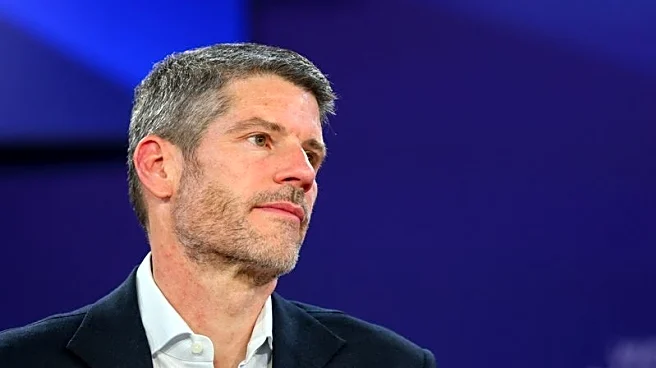What is the story about?
What's Happening?
Bowen Yang has made history by securing his fourth Emmy nomination for his role on 'Saturday Night Live,' marking him as the most-nominated Asian male performer in the Emmy's history. Yang was nominated for Outstanding Supporting Actor in a Comedy Series. Despite this achievement, Yang expressed mixed feelings about being the only Asian American and Pacific Islander (AAPI) nominee in the acting categories this year. During a speech at Gold House's One House Toast to the Emmys, Yang highlighted the lack of AAPI representation, reminiscing about the days when shows like 'Shogun' provided more visibility for Asian actors. The event celebrated AAPI Emmy nominees and was attended by notable figures such as Celeste Yim and Hiroyuki Sanada.
Why It's Important?
Yang's nomination underscores ongoing challenges in achieving diversity and representation in Hollywood, particularly for AAPI actors. While his recognition is a significant milestone, the lack of broader AAPI representation in the Emmy nominations highlights systemic issues within the entertainment industry. This situation reflects a broader conversation about diversity and inclusion in media, where underrepresented groups continue to struggle for visibility and recognition. The acknowledgment of these disparities by influential figures like Yang and organizations like Gold House is crucial in advocating for change and encouraging the industry to provide more opportunities for diverse talent.
What's Next?
The Emmy Awards will serve as a platform to further discuss and address the representation issues highlighted by Yang and others. As the industry continues to grapple with diversity challenges, there may be increased pressure on networks and production companies to prioritize inclusive casting and storytelling. Organizations like Gold House are likely to continue their advocacy efforts, pushing for systemic changes that ensure equitable representation for AAPI and other minority groups in Hollywood.
Beyond the Headlines
Yang's comments and the broader discussion at the Gold House event point to a cultural shift where underrepresented communities are increasingly vocal about their experiences and demands for change. This could lead to long-term shifts in how media companies approach diversity, potentially influencing hiring practices, content creation, and audience engagement strategies. The emphasis on defying categorization and celebrating diverse identities may inspire other industries to adopt similar approaches, fostering a more inclusive cultural landscape.















